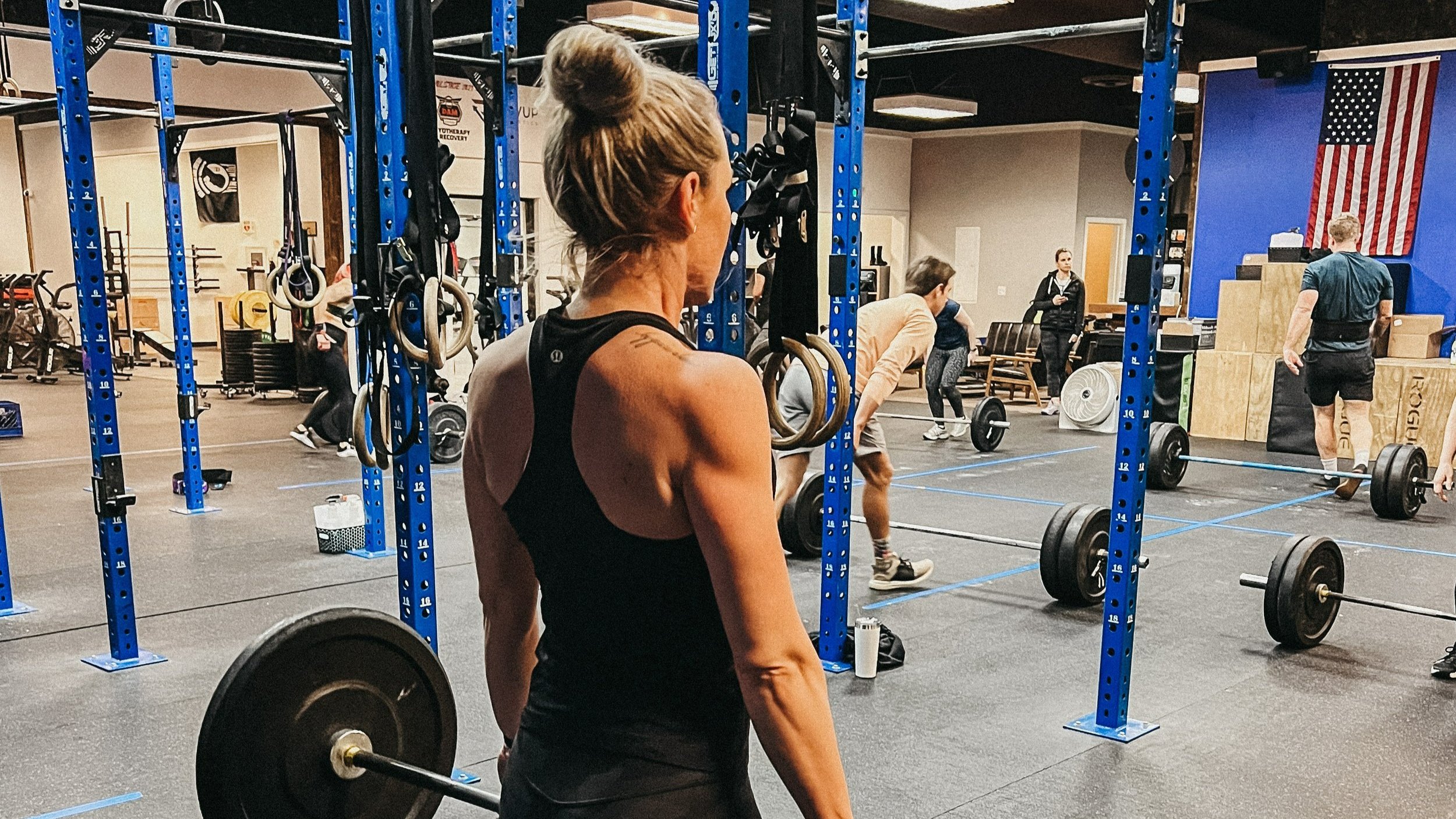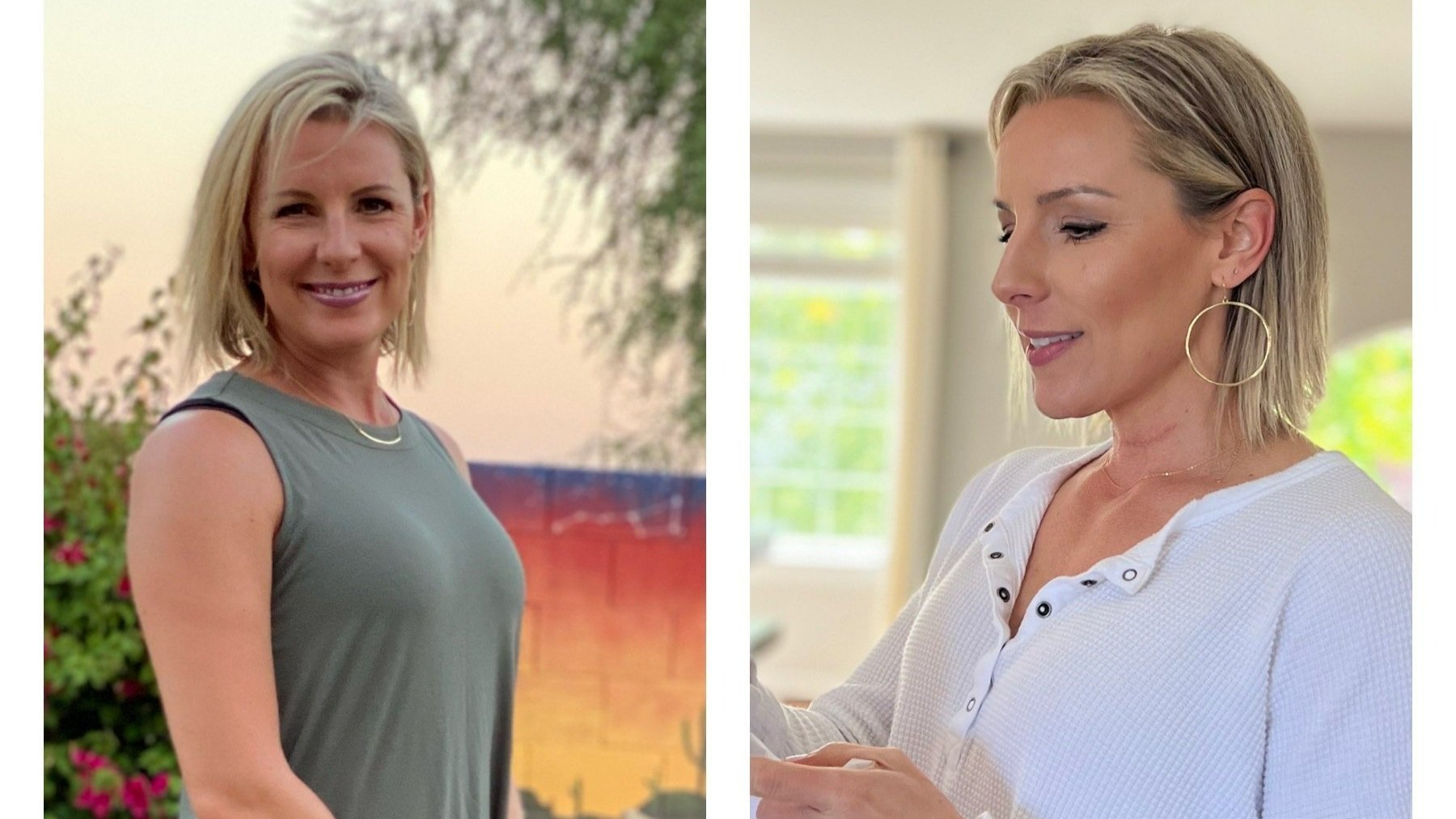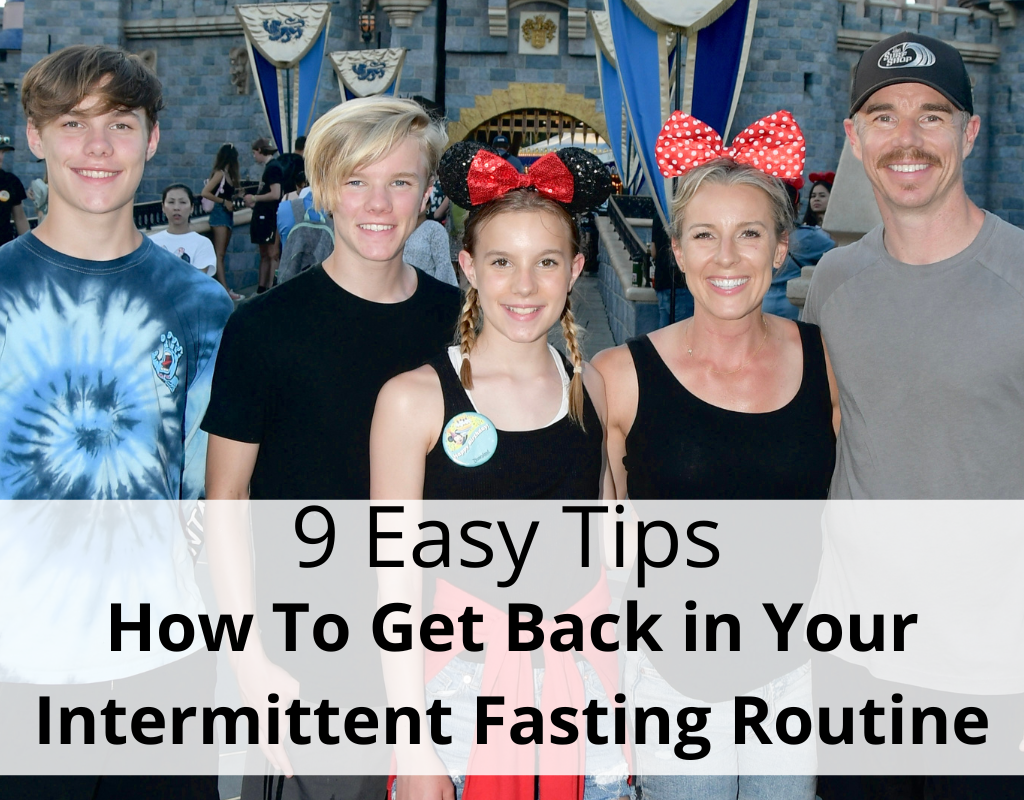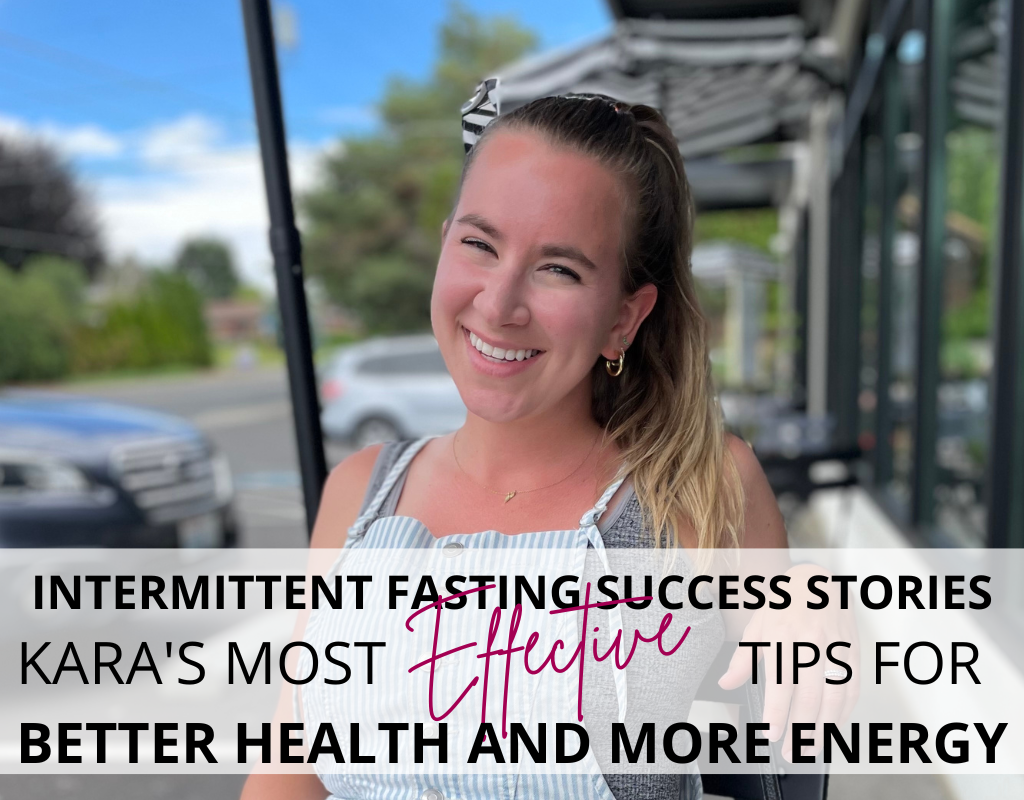
Intermittent Fasting Part 2. When I Eat After Exercise and Other FAQ’s.
In my last post I shared the results of my one year journey with intermittent fasting. If you haven’t yet read that, I’d encourage you to do so here . Intermittent fasting has brought freedom and health into my life and by practicing it I was able to lose 25 pounds. It has been really fun to hear back from so many of you! I received a lot of questions so I decided to write this as a follow up to summarize the most frequently asked questions. Here they are:
Do you eat right after you exercise?
Since February I have been going to a CrossFit gym between three and five times a week at 6:00 am and I typically walk 3-4 miles around 9:00 am the other days. With the exception of Saturdays, I almost never break my fast before 1:00 pm (on Saturdays I typically open my eating window a little earlier with a family brunch). This has worked very well for me and I am stronger and have more muscle definition than I ever have.
I do understand that this is a hot topic. We have been told over the past few decades that we must fuel our bodies before we exercise and immediately after we exercise or our body will eat our own muscle. Thankfully, research has proven this is not true (unless if we have almost no body fat and our only source of energy left is muscle. That is not the case for most of us).
I was grateful that in Gin Stephen’s book, Fast. Feast. Repeat. she included a meta-analysis of all of the research on muscle growth and protein timing. The conclusion of the meta-analysis is that it is important to get adequate protein within 24 hours of strength training, however it is not crucial to eat protein within one hour of the work out. If you’d like to review it for yourself, that meta-analysis is linked here. (If you are a professional athlete, competitive athlete, or endurance athlete it would be beneficial to talk to someone who is educated both in your field and in intermittent fasting to make sure you are properly fueling).
I find it helpful to consider your primary motive of fasting when deciding how soon to eat following a workout. Is your primary motivation weight loss or to reverse insulin resistance? If so you may choose to wait until you reach the fasting time goal that you have in mind before eating. If your primary goal is just digestive rest and overall health, you can choose to eat right after. You also could finish eating earlier the day before your workout so that you reach your fasting goal around the time your workout ends.
How do you break your fast?
I have learned that if I break my fast with something sweet, I have a hard time stopping with the sweets. My favorite way to open my eating window is with a big salad or with eggs sautéed with veggies, or avocado toast. If I’m going to have sweets I will save that until I’m completely finished eating and I will close my window with that. That way I’m already satiated and I am less likely to overconsume sweets.

Do you restrict your calories or eat less that you used to?
I definitely do not count my calories – that is one of the reasons that intermittent fasting is so freeing! Just to experiment though I decided on two occasions to enter everything that I ate for that day into a calorie counter to see if I do eat less calories as an intermittent faster. Both times I did this I was eating very close to the recommended 1,800 “maintenance” calorie amount for my age, gender, height, and current weight. That being said, I have become much more intuitive with my body in the past year and some days I eat only one, hearty meal and I feel completely satisfied and close my eating window. That is not with the intention of eating less, but knowing that is all that I need for the day to feel satisfied. About once a month (ahem, that time of the month) I will have a day where I have a really hard time of waiting until my 18 hour fast goal and I have learned that this isn’t because I am board, but my body really does need more food that day, and I will open my window early and eat more that day.
What do you do about vacation and holidays?
The beautiful this about intermittent fasting is that it is adaptable to your life. The first vacation we took was just over a month after I started IF. My goal on that trip was to fast for a minimum of 12 hours each day. Many days I fasted closer to 16 hours, but knowing that I had the freedom to enjoy breakfast, lunch and dinner if I wanted to didn’t make the vacation feel like I had any food limitations.
We took a trip to Arizona when I was five months into IF and on that vacation I found it very easy to maintain a 16 hour fast each day. Would it have been okay if I just fasted 12 hours? Of course, but I was content skipping breakfast or eating it late.
I have the same mindset with holidays. I ask myself if it’s worth it to have a short fast and longer eating window on those special days, and if the answer is yes, I do it, knowing that I will get back to my normal fasting routine the next day.
How did you adjust to drinking black coffee?
I have a long history with coffee and a deep love for it so it did not even cross my mind to give coffee up, even if I had to drink it black ;). The good news is that our taste buds regenerate every two weeks, so when switching to black coffee for your fast, give it two weeks and you will be much more adjusted. Here are a few tips that some people find helpful:
- add a pinch of salt to your coffee grounds before brewing to help neutralize some of the bitterness
- blend your coffee in a blender to add air to it, seemingly making it smoother
- switch to cold brew, as it tends to be more smooth (just make sure there are no flavors or added ingredients)

Do you restrict foods or follow a special diet?
Since taking a college nutrition class in 2002 I have fallen in love with studying nutrition and have done so for fun ever since! I prioritize eating food as close to it’s original form as possible, meaning whole grains, fruits, vegetables, legumes and meat that is not highly processed. I don’t have any dietary restrictions, however, I will not knowingly eat anything with hydrogenated oils, MSG, aspartame or saccharine. When buying special treat foods for my family I don’t buy things with bleached flour, sucralose or high fructose corn syrup. Additionally, I very rarely buy treat foods with seed oils in them. Other than that, I consume most treats in moderation.
I am not of the belief that there is only one way of eating that is best for everyone, other than eating real food is best for everyone. We are all bio-individual and some of our bodies do better processing carbohydrates than others, some do better processing fats than others, some of us have food sensitivities and allergies, and we all have unique gut microbiome (the microorganisms in our intestinal tract, now often refereed to as our second brain).
Now, I do have to share that there are very strong correlations in the types of foods eaten in all five of the world’s Blue Zones, the areas with the longest lived people. That is another topic for another day, but they all eat real food, heavily build around plants.
Because I am not snacking all day long, fasting has helped me differentiate between foods that make me feel great and are satisfying and foods that do not work as well for me.
Do you use a fasting app?
I love data so I do enjoy using a fasting app! There are several options and personally I’m content with a basic timer to keep track of how long my fast is so I use the free version of the Zero app. It also shows me my weekly averages, my total fasting hours and more. Since downloading the Zero app, to date I have logged 299 fasts!
I had many more nuanced questions but I’m going to stop there for now. If you have not already read the book Fast. Feast. Repeat. by Gin Stephens, I highly recommend that you do so. It’s an incredible comprehensive guide to intermittent fasting. Gin has a FAQ section and she answers just about every question you possibly could have.
If you have started intermitted fasting recently, I would LOVE to hear from you! Please leave a comment below or send me an email.
Fasting is not recommended for growing children, pregnant or nursing women, or people with a history of eating disorders. I am not a doctor or medical professional, just a person who is passionate about health and healthy living. My life has been changed by intermittent fasting and it is a lifestyle that I intend to always do. I truly desire that we all strive to overcome adversity and live abundantly and I believe that fasting is an incredible tool to help achieve that. If you’d like to try it but have health concerns, I recommend that you do research for yourself and talk to your medical doctor.



4 Comments
Tami Norberg
I love that you shared this experience. I’ve been so troubled with trying to lose some weight and just feel better in my skin. Everything I’ve done in the past is not working as easily since turning 50. I’ve studied and considered IF but reading this from you (someone I trust) I’ve decided to try. I’m only a few days in is far easier than I thought it would be. I haven’t shed weight but I do feel better and my sleep is much better! Thank you!!
Amber Sollie
Thanks so much for sharing, Tami! I’m really happy to hear that you are feeling better already. I experienced that too. Please keep me posted!
Ryan Knicely
Tyler sent me both of your fasting articles and I ate them up! I have fluctuated weight over the last 3 years as well, but also saw the best results when I was IF. I have recently begun doing it again and excited to see the results and change up my life style a bit. Looking forward to reading part 3 if you put one out!
Amber Sollie
Ryan, I’m so glad you checked out the fasting posts and I’m so excited to hear about your progress. Please keep me posted!